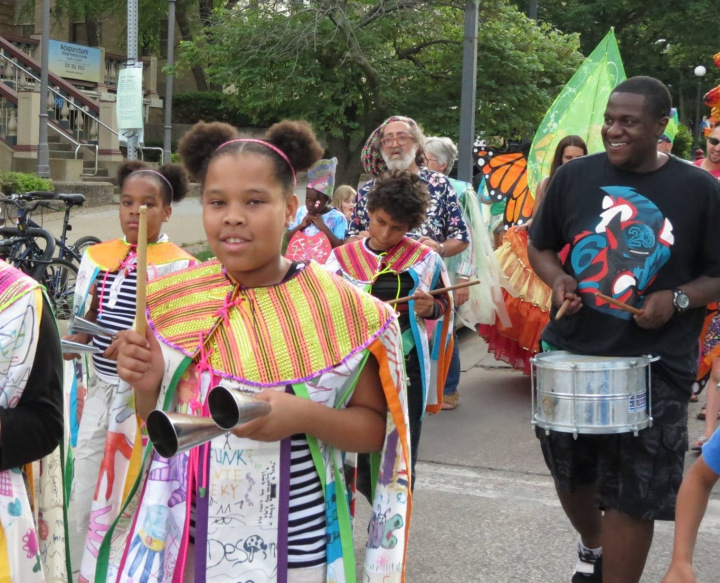The Obermann Interdisciplinary Research Grants (IDRG) foster collaborative scholarship and creative work by offering recipients time and space to exchange new ideas leading to invention, creation, and publication. Groups can choose between two- and four-week residencies. Four groups were in residence in 2016–2017.
Carnival as a Performative Art Form
Loyce Arthur (Theatre Arts, CLAS)
Armando Duarte (Dance, CLAS)
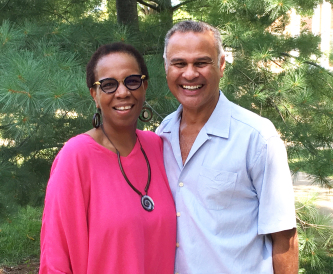
Brazilian Carnival artists have been strong social agents for community engagement through the parades that bring people of all social levels together for a one-of-a-kind experience. Professors Loyce Arthur and Armando Duarte have been working over the past four years to bring a similar experience to local and university communities. During Summer 2016, the two created carnival costumes and dances with local participants (see photo above of the Iowa City Carnival in June 2017). They discussed how Carnival costume and dance have influenced each other throughout history, their social and artistic meaning, and the practical methods used to make costumes and dances.
Heterogeneous Network Data Analytics to Improve Urban Sustainability
M. Zubair Shafiq (Computer Science, CLAS)
Xun Zhou (Tippie College of Business)
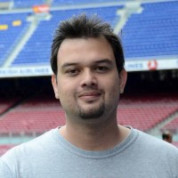
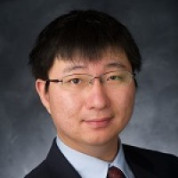
Modern urban systems are increasingly facing significant challenges in sustainable development due to a persistent increase in motor vehicles and population density. These changes may lead to higher fuel consumption, higher greenhouse gas emissions, and low efficiency in public services. The key task for city planners is to intelligently manage urban systems so as to minimize energy consumption and pollution, while maximizing the efficiency of the public service systems.
Using transport network data from New York City, Shenzhen, and Changsha, Shafiq and Zhou are working to design geospatial network mining algorithms for optimizing these cities’ urban transport systems in terms of traffic congestion, greenhouse gas emission, and urban mobility.
Since their summer residency, the two have published the following papers:
- Amin Vahedian Khezerlou, Xun Zhou, Lufan Li, Zubair Shafiq, Alex Liu, and Fan Zhang. “A Traffic Flow Approach to Early Detection of Gathering Events: Comprehensive Results.” ACM Transactions on Intelligent Systems and Technology. (In press)
- Xun Zhou, Amin Vahedian Khezerlou, Alex Liu, Zubair Shafiq, Fan Zhang. “A Traffic Flow Approach to Early Detection of Gathering Events.” Proceedings of the 24th ACM SIGSPATIAL International Conference on Advances in Geographic Information Systems (ACM SIGSPATIAL 2016).
The Influence of Age at Implantation on Sequential Learning Processes in Children with Cochlear Implants
Elizabeth Walker (Communication Sciences & Disorders, CLAS)
Hannah Pimperton (University College London, Institute of Cognitive Neuroscience)
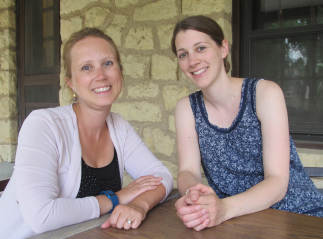
Cochlear implants allow children who are deaf to perceive speech, enabling them to acquire spoken language. Children who receive cochlear implants earlier in life tend to achieve better language outcomes than those who are implanted later. Walker and Pimperton are working to determine whether there is a relationship between age at implantation and learning efficiency in verbal, visual, and motor contexts, as well as the specificity of this relationship to language. They hope their efforts will contribute to our understanding of sensitive periods for language development, as well as the impact of auditory deprivation on domain general and domain specific aspects of learning. Clinically, their goal is to provide evidence that will inform decision making for parents and medical professionals regarding the optimum age for cochlear implantation in children who are congenitally deaf.
Walker and Pimperton currently have a manuscript in revision that they worked on at Obermann during their residency. Walker also received a two-year $75,000 grant from the American Speech-Language-Hearing Foundation related to this project. The grant is titled “Investigating Links between Non-linguistic Learning Processes and Grammar Skills in Children with Cochlear Implants.”
The Meek and the Mighty: Exploring Diversity Programs among Big Ten Universities
Aislinn Conrad-Hiebner (School of Social Work, CLAS)
D. Martin Kivlighan (College of Education)
Elizabeth Menninga (Political Science, CLAS)
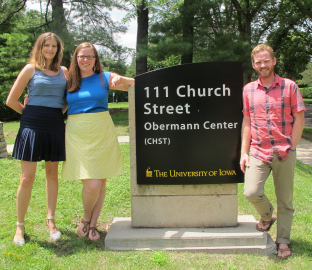 In the United States, college graduates experience better employment opportunities, increased income, and greater wealth than high school graduates. Despite the widespread benefits of attending college, universities have traditionally served students from White and middle- to upper-class backgrounds and have unsuccessfully retained diverse students, resulting in the further marginalization of underrepresented populations. In fact, it is estimated that six out of ten Black and Latino/a undergraduates at a four-year institution will fail to graduate. Recognizing a need for greater inclusion of and support for underrepresented students, universities have turned their attention to the development of diversity and cultural programs to both encourage greater diversity within the institution and provide supportive services to students from traditionally marginalized backgrounds. Although evidence suggests that greater diversity initiatives in higher education fosters students’ academic and social growth, little is known about the establishment and spread of these programs across universities. Therefore, this group’s research seeks to further explore processes and patterns of developing and implementing diversity and supportive programs, as well as the impact of these efforts on student and institutional outcomes.
In the United States, college graduates experience better employment opportunities, increased income, and greater wealth than high school graduates. Despite the widespread benefits of attending college, universities have traditionally served students from White and middle- to upper-class backgrounds and have unsuccessfully retained diverse students, resulting in the further marginalization of underrepresented populations. In fact, it is estimated that six out of ten Black and Latino/a undergraduates at a four-year institution will fail to graduate. Recognizing a need for greater inclusion of and support for underrepresented students, universities have turned their attention to the development of diversity and cultural programs to both encourage greater diversity within the institution and provide supportive services to students from traditionally marginalized backgrounds. Although evidence suggests that greater diversity initiatives in higher education fosters students’ academic and social growth, little is known about the establishment and spread of these programs across universities. Therefore, this group’s research seeks to further explore processes and patterns of developing and implementing diversity and supportive programs, as well as the impact of these efforts on student and institutional outcomes.
During their residency, the group presented their preliminary findings and discussed their limitations with scholars conducting similar research at the UI’s Inequality Seminar on October 3, as well as considered how they might access the data needed to perform further social network analyses. The group hopes to submit a manuscript to a peer-reviewed journal in the near future.
Read our article: “The Meek and the Mighty: Interdisciplinary Research Grant Explores Diversity Programs”
